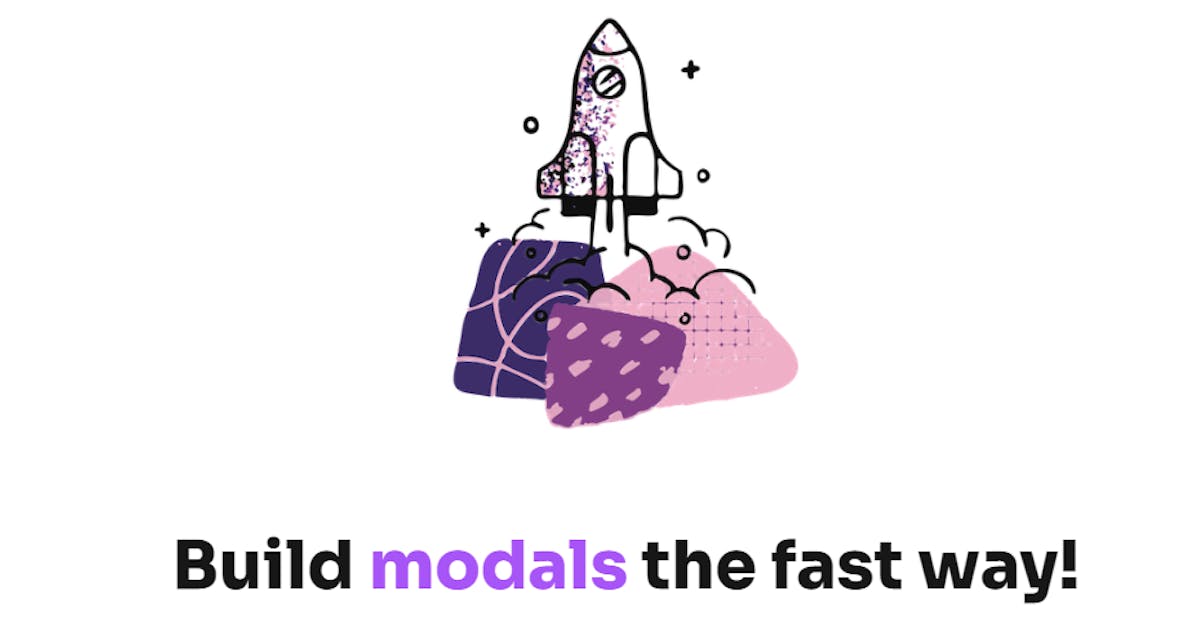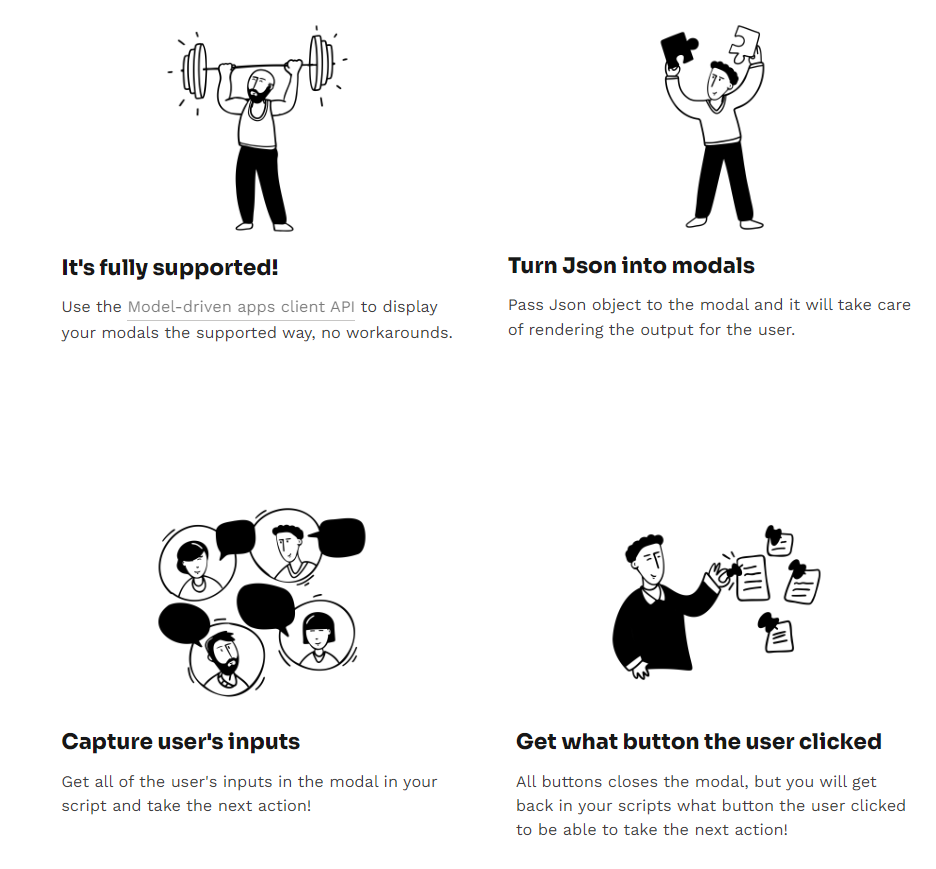What is powerapps-modals?

Overview
powerapps-modals gives you the tool to build attractive modals in Model-driven apps fast & easy. You just need to configure the modal configuration and start calling it from your client code.
Why?

Roadmap
Click here to see the roadmap of powerapps-modals
Installation
Go to this link and download the latest release managed zip file, and then install it in your environment
How to use?
- Install the zip files in your environment
- Prepare your Json
{
"icon": "success",//warning //error
"labels": [
{ "text": "Activation Succeeded", "type": "h1" },
{
"text": "Enter customer name and email to submit the request to the next stage",
"type": "h2",
},
],
"inputs": [
{
"id": "customername", //used to get the value when the modal object is returned
"label": "Customer Name",
},
{
"id": "customeremail",
"label": "Customer Email",
},
],
"buttons": [
{
"id": "button-cancel", //used to know what button was clicked, retunred with modal return object
"label": "Cancel",
"type": "white", //blue //red
},
{
"id": "button-submit",
"label": "Submit",
"type": "blue",
},
],
}
- Call it from your script
let pageInput: Xrm.Navigation.PageInputHtmlWebResource = {
pageType: "webresource",
webresourceName: "vite_/viteapps/pages/modals.html",
data: JSON.stringify(modalJsonObject), //modalJsonObject, pass your json object here
};
let navigationOptions: Xrm.Navigation.NavigationOptions = {
target: 2, // 2 is for opening the page as a dialog.
width: 400, // default is px. can be specified in % as well.
height: 500, // default is px. can be specified in % as well.
position: 1, // Specify 1 to open the dialog in center; 2 to open the dialog on the side. Default is 1 (center).
title: "Record activation modal", //recommended to enter title here
};
Xrm.Navigation.navigateTo(pageInput, navigationOptions).then(
function success(returnedValues) {
console.log(returnedValues);
/*
Return values object comes in the below format
{
inputs:object //holds the inputs and what the user filled them in with, you can get them by using the input id as the identifier
clickedButton:string // the id of the button the user clicked
}
for the above example you can get your inputs like the below
*/
let clickedButton = returnedValues.clickedButton; //if the user clicked on submit button it will return "button-submit"
let customerName = returnedValues.inputs["customername"]; //returns what user filled in the customer name input
let customerEmail = returnedValues.inputs["customeremail"]; //returns what user filled in the customer email input
},
function error(e) {
// Handle errors
}
);
That's it :)
Published on:
Learn moreRelated posts
5 Dataverse Date Fields and the Date Picker in Canvas Apps
Within Dataverse we can configure date fields in 5 different ways. When we use these fields in a Power Apps Canvas App they will behave slight...
Modern Combo box limitations in Power Apps
Following my post about migrating from the Classic Controls to Modern Controls, today a bit of a closer look at the Modern Combo box.
Migrate from Classic Controls to Modern Controls in Power Apps
Have you considered moving you Canvas Apps from Classic Controls to Modern Controls? Unfortunately it isn't as easy as just replacing each con...
Generating and Sharing Screen in PDFs from D365 Sales Using Canvas Apps
In many Dynamics 365 Sales implementations, sales users need a simple and intuitive way to preview a quote, generate a PDF, and share it with ...
Calender View in Power Apps Model Driven APP
Vibe coding with Power Platform – Power Apps Code Apps
Power Platform offers several different ways to vibe code. Generative pages and Vibe Power Apps have been covered in previous articles, so thi...
Power Apps – Content Security Policy enforcement for Power Apps code apps
Starting on January 26, 2026, we will introduce strict Content Security Policy (CSP) enforcement for Power Apps code apps (preview). CSP is a ...
Decimal dot or comma in Power Apps
How do you write 1,234.56? Do you have a decimal dot or a decimal comma? Well most likely this depends on where you live. How do you deal with...